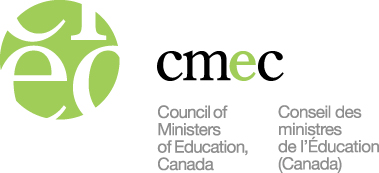This is the legacy site of the Council of Ministers of Education, Canada (CMEC).
It is slated to be discontinued in the coming months.
You are invited to visit and explore the new CMEC site at http://www.cmec.ca/.

This is the legacy site of the Council of Ministers of Education, Canada (CMEC). You are invited to visit and explore the new CMEC site at http://www.cmec.ca/. |
 |
The project supports the spirit and intent of collaboration as described in the protocol. All jurisdictions except Quebec are participating in the development of a common framework of science outcomes for K-12. Throughout the project, anglophones and francophones will work together to ensure the development of deliverables in English and French. The final document arising from the Pan-Canadian Science Project will contain the following elements:
The processes and procedures of the Pan-Canadian Science Project will maximize stakeholder involvement, with that involvement occurring within the context and mechanisms of the various jurisdictions at key times throughout the project. At appropriate points, draft documents will be provided to participating jurisdictions for review within their jurisdictions. This review process requires participating jurisdictions to distribute draft documents developed within the Pan-Canadian Science Project to their stakeholders such as educational partners from elementary and secondary schools, postsecondary institutions, business and labour organizations, parent groups, science professionals' organizations, science interest groups, and representatives from other ministries, and to prepare a report for the lead jurisdictions. The lead jurisdictions will respond to individual jurisdictions' comments and will send a summary of all jurisdictional reports to the project team.
Communication is essential to the success of the project, including communication within and
between ministries and departments of education, with educational partners, and with partner
organizations. On a national level, information will be disseminated by CMEC via the CMEC
Secretariat. On a jurisdictional level, ministries and departments of education will ensure
appropriate communication with partners and stakeholders throughout the project.
Last Revised: 1996 03 28
|
||||
| © 2009 Council of Ministers of Education, Canada |